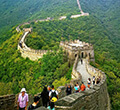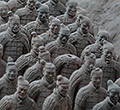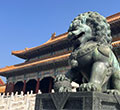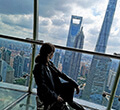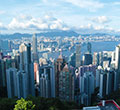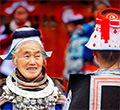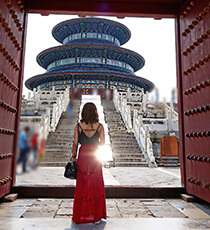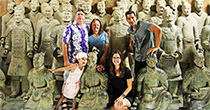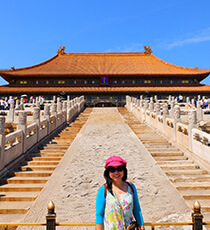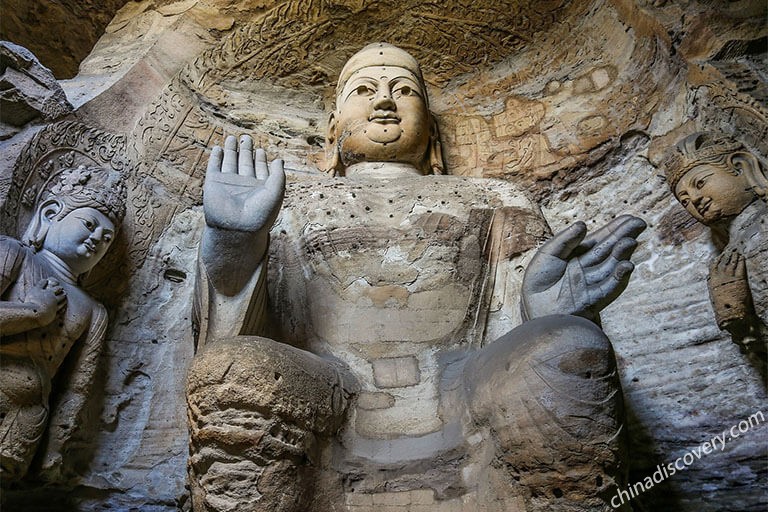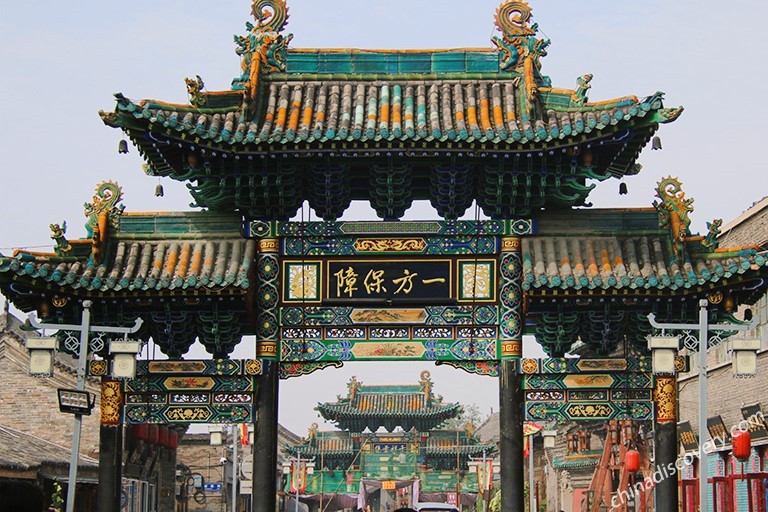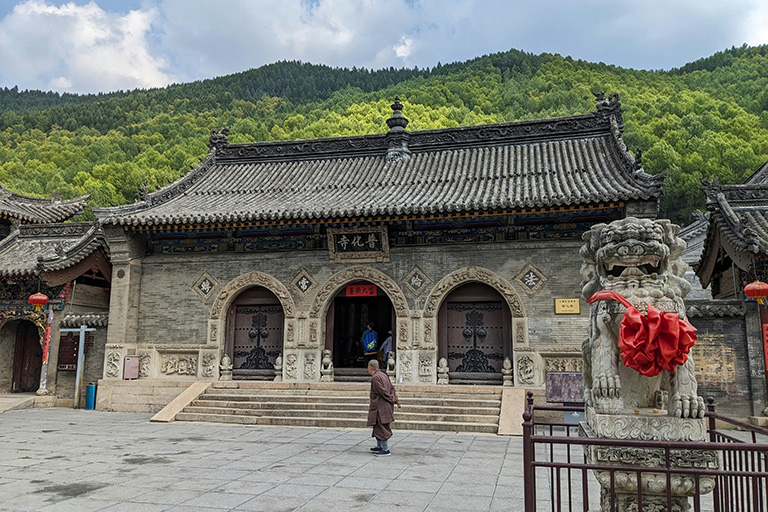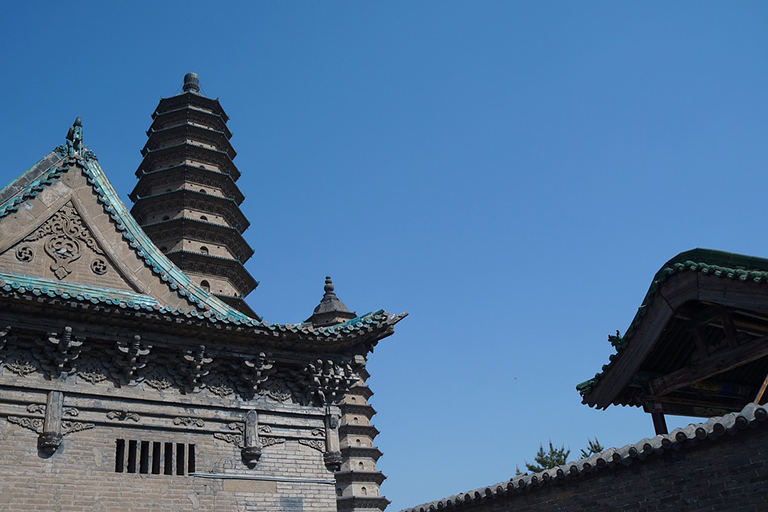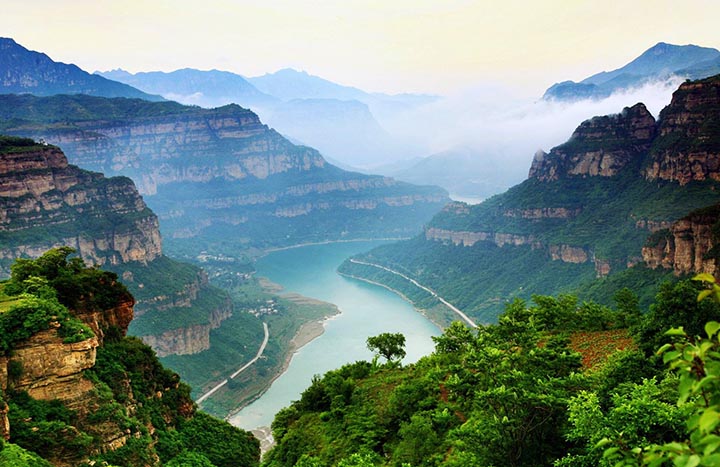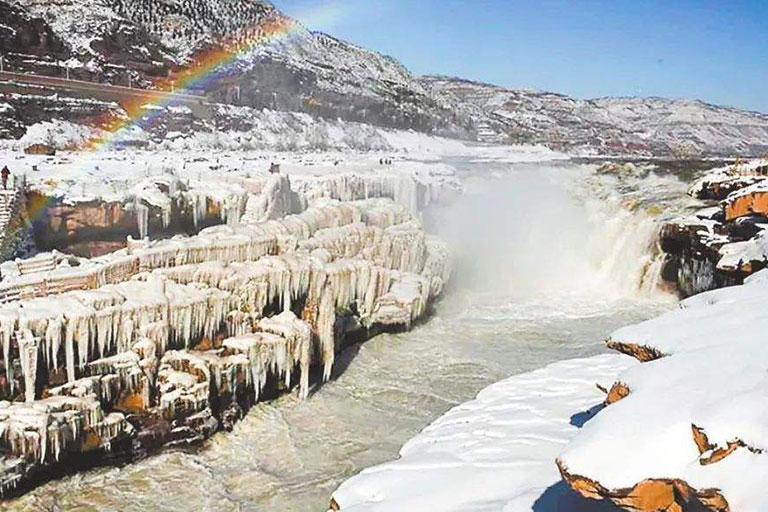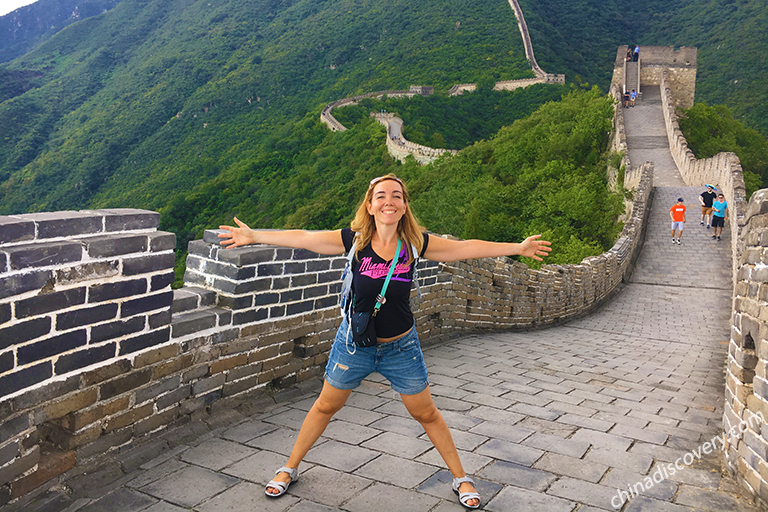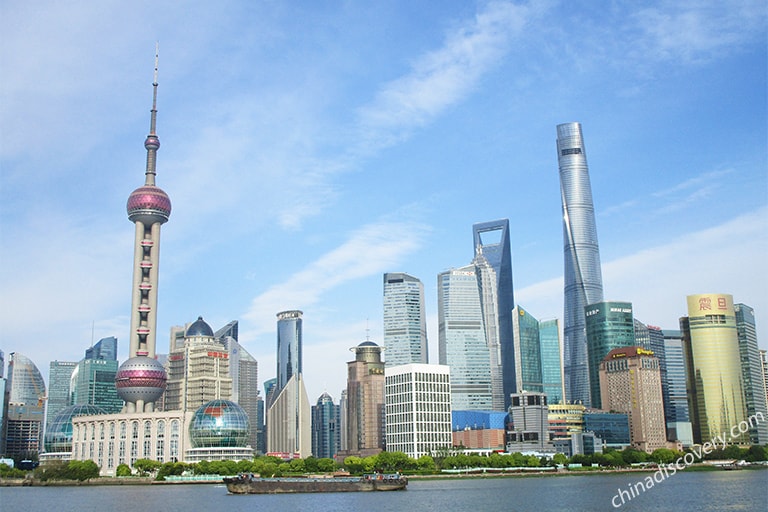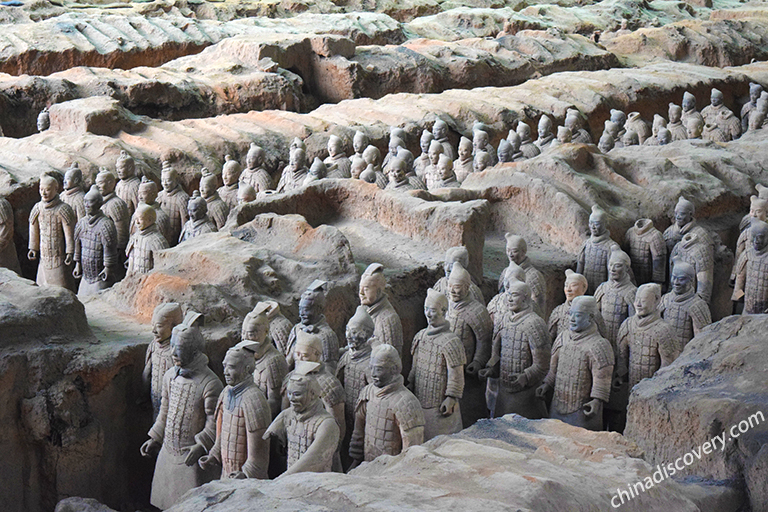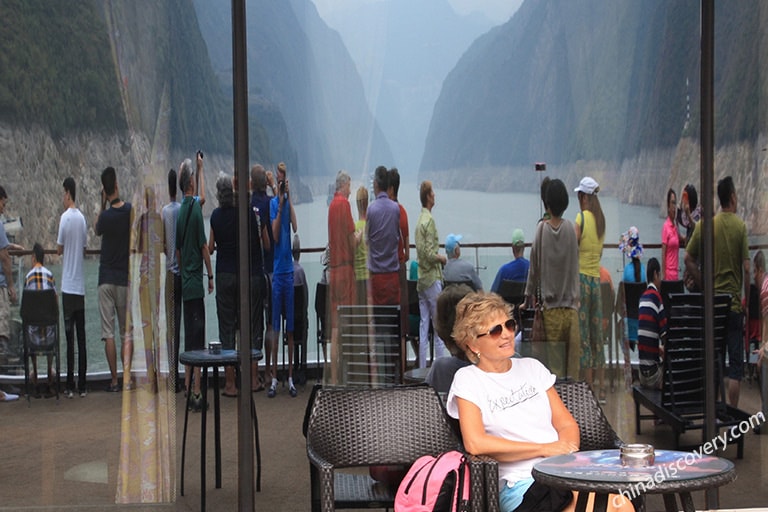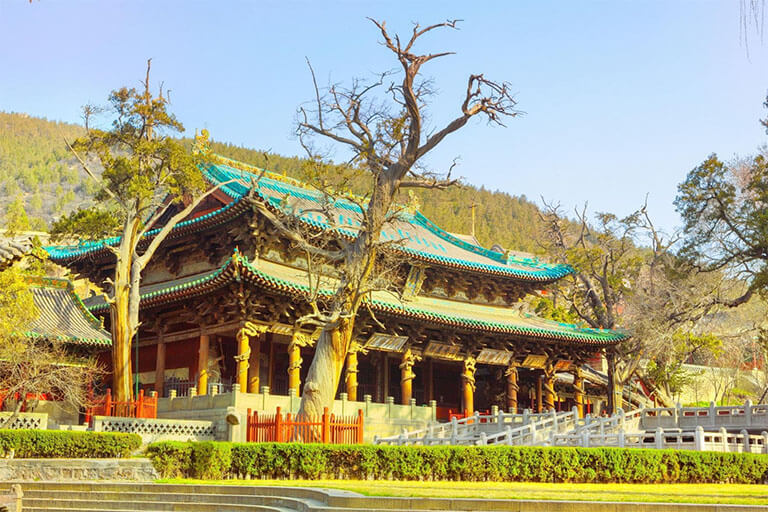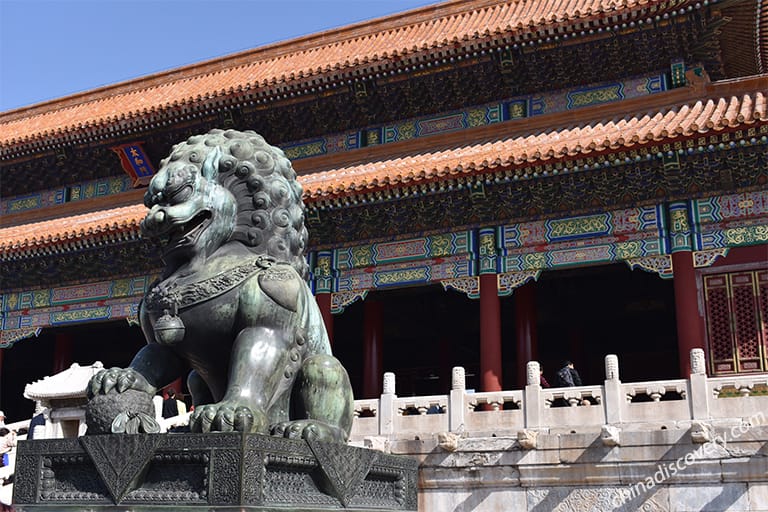Shanxi (abbreviated as “Jin”) is an inland province in North China, which borders Heibei to the east, Shaanxi to the west, Henan to the south and Inner Mogolia to the north. Also, it lies west of Taihang Mountain and faces Lvliang Mountain, Yellow River in the south and Great Wall in the north. Acknowledged as one of the cradles of Chinese civilization, Shanxi has a long history of over 3,000 years, and Datong, Taiyuan were capitals of some dynasties of ancient China. Unarguably, Shanxi is a wonderful region to explore ancient Chinese culture and history.
Why Visit Shanxi Province:
-
Brilliant UNESCO World Heritage Sites of China. Shanxi has three World Cultural Heritage properties, including Datong Yungang Grottoes (inscribed in 2001), Ancient City of Pingyao (consisting of three sites: Pingyao Ancient City, Shuanglin Temple, Zhenguo Temple, listed in 1997) and Mount Wutai (inscribed in 2009). Each presents a remarkable culture of Shanxi.
-
Spectacular Natural Wonders. Liu Zongyuan (a notable Tang Dynasty poet from Shanxi) once praised Shanxi a strategic region located between two mountains with rivers flowing through. In the northern Shanxi, there is Mount Wutai stretching thousands of miles with five plat-topped peaks, and majestic Hengshan Mountain, silent volcanic cluster and miraculous stone forest in Datong. In the southwest, Yellow River Hukou Waterfall produces a breathtaking roaring sight on China’s Mother River. Taihang Mountain in southeast of Shanxi has amazing canyons, towering peaks, rich flowers and herbs, winding rivers and countless great mountain sights.
-
Characteristic Ancient Courtyard Residences. Shanxi folk house is one of the best famous and most representatives of Chinese traditional residential buildings. Mostly assembled in Pingyao and Qi County in central Shanxi, Shanxi ancient residences are clan-lived private mansions constructed in courtyard (Siheyuan) style. These castle-like complexes are often encircled by stone walls, well-organized and divided into several quarters with hundreds of rooms, which are perfectly linked by lanes and decorated with different carvings and decorations. Wang’s Family Compound, Qiao’s Family Compound and House of the Huangcheng Chancellor are the top famous examples.
-
Various Marvelous Ancient Buddhist Temples. After witnessing the development and wide spread of Buddhism, Shanxi possesses many relics of Buddhist culture. The temples are not only holy religious sites offering inner peace for followers, but also strong proof of traditional art and architectural achievement. As one of the most sacred Buddhist mountain in China, as well as the country’s earliest and biggest international Buddhist shrine, Mount Wutai has 47 existing Buddhist temples of different Buddhist sects, built in different dynasties, some of China’s oldest temples and biggest nun academy. Other finest Buddhist temples in Shanxi include Fogong Temple with Yingxian Wooden Pagoda, Foguang Temple with Chin’s third oldest timber structure, Nanchan Temple keeping the oldest wooden buildings and rare Tang Dynasty cultural treasures in China.
-
Glorious Shanxi Cultures. Shanxi enjoys a rich, distinct and colorful local culture from ancient times. The culture of Shanxi merchants, Shanxi Opera and Shanxi cuisine are the most famous highlights. Shanxi merchants, adhering to honest and unity firmly, created a historic legend during Song and Qing Dynasties and prompted development of domestic economy, even went far to Europe and Central Asia. The first modern bank later occurred in Pingyao and made Pingyao the prosperous capital center of China. Many architectural heritages have been left by those brilliant businessmen. Shanxi is also the best area to taste diverse wheaten food in China. Its unique flavor, different forms are a simple but interesting fusion of nature and human life.
- ......
Top 8 Travel Destinations in Shanxi
Shanxi has 11 prefecture-level cities in total and you can always find wonderful cultural gems from north to south. You can discover fantastic Buddhist grottoes culture in Datong, trace back to ancient China in Ancient City of Pingyao, soak the serenity and purity of Buddhist in beautiful Mount Wutai in Xinzhou, observe gorgeous architecture in Taiyuan, view thundering Yellow River in Linfen, appreciate grand family compound in Jinzhong, etc. >> Top Shanxi Tourist Destinations
Popular Attractions in Shanxi
Under the title “A Chinese Ancient Architecture Museum of Art”, Shanxi preserves 452 national key cultural heritages (1/5 of China’s total number) and over 70% ancient architectures built before Song and Jin Dynasties. Chines culture and history fans can always get a feast for your appetite, since Shanxi has fabulous cultural relics ranging from large-scale Buddhist grottoes, ancient city, folk residences, temples, Great Wall to fine Chinese traditional arts of painting, architecture, sculpture, carving, calligraphy, stela and so on. In addition, natural landscape is no less impressive that other parts of China, such as Mount Wutai, Hengshan Mountain, Hukou Waterfall, Taihang Mountain.
>> Top Shanxi Tourist Attractions & Things to Do in Shanxi
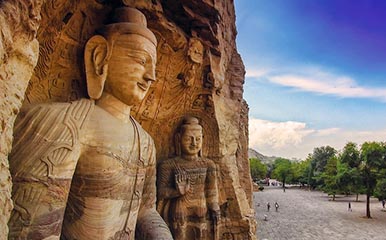
Datong Yungang Grottoes
Listed as a UNESCO World Culture Heritage site, Yungang Grottoes is one of the best and largest Buddhist grottoes in China, presenting extraordinary Buddhist art of the North Wei Dynasty.

Hengshan Hanging Temple
Built into a cliff about 50 meters from ground, Hanging Temple is a rare architecture marvel that Buddhism, Taoist and Confucianism coexist. It’s a showpiece of ancient Chinese wisdom.

Pingyao Ancient City
Pingyao Ancient City, over 2,700 years old, is one of the four best-preserved ancient cities of China and an outstanding example of Chinese Han ancient urban city of Ming and Qing Dynasty.

Mount Wutai
Named for the five terraces, Mount Wutai is one of the Four Sacred Buddhist Mountains in China with the largest temple group in the world, and home to some of China’s oldest wooden structures.

Wangs' Family Compound
Esteemed as the “Forbidden City in Folk”, it is the largest Shanxi courtyard house with a construction history of over 300 years. It’s charming for the large scale, consummate carvings everywhere and elaborate layout.

Qiao’s Family Compound
It was the private residence of Qiao Zhiyong, a local billionaire. Now, it is a national museum exhibiting Shanxi folk culture as one of the remaining Shanxi traditional residence in North China.

Hukou Waterfall
This stunning roaring waterscape is in the middle reaches of Yellow River at borer of Shanxi and Shaanxi Provinces. It’s the biggest waterfall on the Yellow River and world’s largest yellow waterfall.

Yingxian Wooden Pagoda
With a long history of nearly 1,000 years and a striking height of 67.31 meters, Yingxian Wooden Pagoda in Fogong Temple is the China’s oldest wooden pagoda and the highest in the world.

Shuanglin Temple
Shuanglin Temple is a renowned “Oriental Gallery of Painted Sculptures” which is located just 6 km from Pingyao Ancient City. It features over 2,000 lifelike painted clay sculptures of Buddhas and figures.

Jinci Temple
Situated in Taiyuan, Jinci Temple is the earliest royal ancestral temple garden in China and the only carrier of ancient architectures of Song, Yuan, Ming, Qing Dynasties and the Republic from intact periods and architecture types.

Shanxi Museum
Shanxi Museum is a provincial comprehensive museum and national first-class museum. With a huge collection of over 500,000 cultural relics, it’s a perfect window to learn the diverse culture and long history of Shanxi.
Shanxi Weather & Climate - Places to Go in Each Season

As a landlocked province in North China, Shanxi has a Temperate Continental Monsoon Climate. It has climate features including: four distinct seasons, abundant sunshine, large variation between the north and the south areas, sharp temperature disparity between day and night, summer and winter. Generally, summer in Shanxi is hot, humid with rich precipitation, and winter is quite long, dry and cold. Late Spring months of April and May, and September to October, early November are the best time to visit major attractions in Shanxi, when the temperature is moderate, air and sky is more clear. Two exceptions are Mount Wutai with high elevation and rich vegetation is a nice summer resort, Pingyao Ancient City holds annual Chinese New Year each year. Meanwhile, because its terrain is high in northeast and low in southwest, mountains, hills, pains are covered most regions, rainfalls can be affected by this factor. More about Shanxi Weather & Seasons >>
Best Places to Visit in Spring: Datong, Pingyao Ancient City, Hukou Waterfall, Taiyuan.
Best Place to Visit in Summer: Mount Wutai.
Best Places to Visit in Autumn: Datong, Pingyao Ancient City, Hukou Watefall, Taiyuan.
Best Place to Visit in Winter: Pingyao.
>> Datong Weather / Pingyao Weather / Mount Wutai Weather
>> Taiyuan Weather / Hukou Waterfall Weather
How to Get to & around Shanxi
Get to Shanxi
By Flight: Altogether, Shanxi has 7 civil aviation airports. Among all, Taiyuan Wusu International Airport is the most commonly used airport and biggest airport in Shanxi, and a popular regional air hub in Shanxi. You can fly to Taiyuan from Beijing, Shanghai, Chengdu, Chongqing, Kunming, Guangzhou, Xiamen, Hangzhou and major tourist destinations in China, and from a few overseas cities like Bangkok, Sydney and Phuket. Meanwhile, you can get to Datong and Mount Wutai in Xinzhou by flight directly.
By Train: Shanxi is an important railway transportation hub in North China. It has three high speed railways: Datong Xian High Speed Railways, Datong Zhangjiakou High Speed Railway and Taiyuan Shijiazhuang High Speed Railway. You can take high speed train to Datong, Pingyao, Taiyuan, Linfen, Xinzhou from main cities in adjacent provinces and get to Mount Wutai from Beijing by normal train.
By Bus: Taking a long-distance bus (about 5 hours) is the most convenient way to get from Beijing to Mount Wutai. Learn more about How to Get to Shanxi >>
Get around Shanxi
Tourists can take high speed trains traveling among Datong, Pingyao, Taiyuan and Linfen. For visiting attractions located far from the downtown area, such as Wang’s Family Compound, private transfer or taxi is the most recommended way to go.
Datong-Pingyao: about 390 km, 3-3.5 hours by high speed train; 6-8 hours by normal train; about 4.5 hours by private driving.
Datong-Taiyuan: about 280 km, 3.5 hours by driving, 2-2.5 hours by high speed train; 4-6 hours by normal train.
Datong-Mount Wutai: about 220 km, about 3.5 hours by private car; 4 hours by long-distance coach.
Pingyao-Taiyuan: about 100 km, about 1.5-2 hours by private car; 30-40 minutes by high speed train.
Pingyao-Mount Wutai: about 300 km, 4-4.5 hours by private car; 5.5 hours by normal train+1.5 hours’ transfer.
Taiyuan-Mount Wutai: about 200 km, about 3 hours by private car; 3.5-4 hours by long-distance coach; 3.5-5.5 hours by normal train +1.5 hours’ transfer.
Linfen-Hukou Waterfall: about 130 km, 2.5 hours by private driving
Useful Shanxi Travel Maps
To help you better know Shanxi, and create a satisfied Shanxi tour fast and conveniently, we have collected many useful Shanxi maps, covering the Shanxi Location Map, Shanxi Tourist Map, Shanxi Attractions Map, Shanxi Transportation Map, etc. All are updated and downloadable. You can find more Shanxi travel maps here.

Shanxi Travel Map

Pingyao High Speed Trains Map
Other Popular Destinations in China
China is vast and diverse. You can choose your favorite destinations among more than 70 tourist destination and regions, like Beijing, Shanghai, Xian, Chengdu, etc. Following are 4 popular destinations you may get interested in. Check all destinations in China.
Start planning your tailor-made holiday to China by contacting one of our specialists. Once
inquired, you’ll get a response within 0.5~23.5 hours.
Customize a Trip
